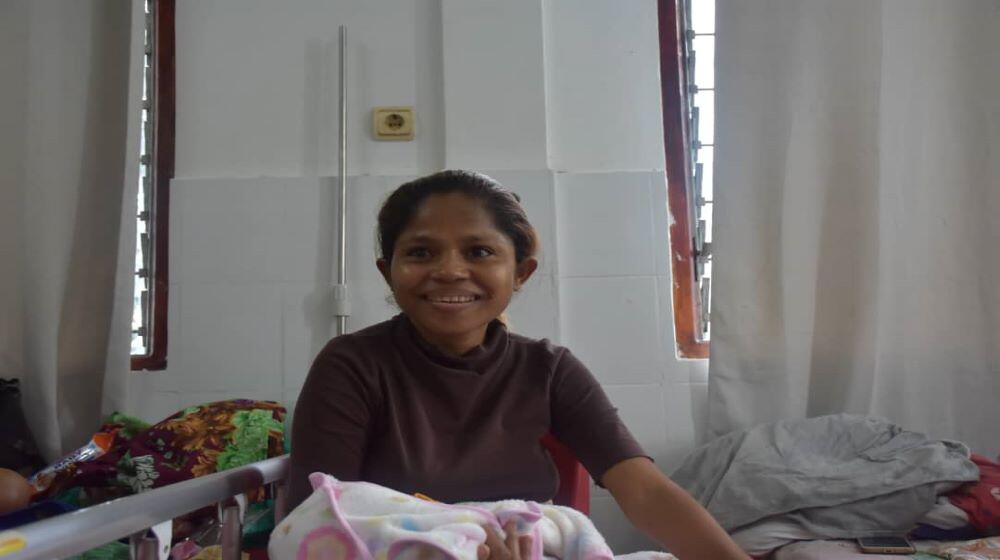Pregnant women living in Same, Manufahi municipality and its environs are now confident of safe and healthy delivery thanks to the newly refurbished Same Basic Emergency Obstetric and Newborn Care (BEmONC) center that was launched in December 2022.
The center is a timely relief to thousands of women at risk of dying during childbirth and provides much needed maternal and reproductive health care services.
According to Dr. Elisabet Salgado, Acting Head of Same Community Health Center, where the BEmONC center is hosted, all the seven main services required of a BEmONC facility are provided at the center to address any complications.
“This center supports about 70 safe deliveries per month. We have had only two cases of maternal deaths since the inception of this facility—mostly due to late referrals,” noted Dr. Elisabet Salgado.
Pregnant women living in Same face the challenge of limited access to quality health care services worsened by the hard to reach roads and mountainous terrains.
“During my first and second pregnancies, I delivered at home and did not receive specialized attention from skilled birth attendants. At this center, the doctors and midwives assisted me to deliver safely,” said Cornelia Ricardo Amaral, a 29-year-old mother who delivered her third born son at Same BEmONC center.
As for Domingas da Costa, a 17-year-old mother of one expecting twins, and 37 weeks pregnant, she traveled from Alas in Manufahi municipality to receive quality maternal healthcare services.
“I was transferred from Alas, in Manufahi using an ambulance after my pregnancy was diagnosed as a risk. It took us about one and a half hours to reach the Same BEmONC center,” said Domingas da Costa.
Unlike many pregnant mothers at risk, she was lucky that her case was identified early and that she arrived at the BEmONC center and received life-saving healthcare services on time.
With Timor-Leste having one of the highest maternal mortality ratios in Southeast Asia of 195/100,000 live births and 30 per 1,000 live births infant mortality rate, the lack of skilled birth attendants during pregnancy and childbirth is a big challenge.
“In my earlier pregnancies, I delivered at home because of the poor condition of the roads and unreliable means of transport. There were no ambulance services to help me reach the hospital on time,” says Olga da Costa.
Data from the Demographic Health Survey 2016 (DHS 2016) shows that only 57 percent of births were assisted by a skilled attendant and 49 percent occurred within a health facility.
“My previous delivery was at home but was transferred to the hospital after I experienced complications. I had a retained placenta that had to be removed at the hospital. I would not like to take chances. I prefer to deliver at this facility,” said Olga da Costa, a 27-year-old mother of four children.
UNFPA continues to work closely with the Ministry of Health to ensure that the maternity units at the municipality level have essential equipment and supplies.
With the technical support from UNFPA since 2018, over 142 trainees have benefited from Emergency Obstetric and Newborn Care (EmONC) training facilitated by Ministry of Health through National Health Institute (INS).
Timor-Leste needs 32 more BEmONC centers to reach all women of reproductive age in the country with skilled birth attendants, antenatal and postnatal care, and family planning services.
For more information, contact:
Suleiman Okoth
Communications and Programme Support Specialist
United Nations Population Fund (UNFPA), Timor-Leste
UN House, Caicoli Street
Dili, Timor-Leste
Mobile: +670 75169796
WhatsApp: +254 780534026
Email; okoth@unfpa.org


